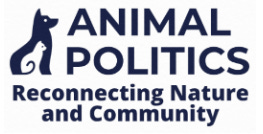Good News from the IRS to Animal Shelter Foster Care Givers
From the Courtroom to the Litter Box: How a Landmark Tax Ruling Empowers Animal Rescue Volunteers
One of the best-kept secrets for animal shelter and rescue volunteers is a financial lifeline found in a 2011 U.S. Tax Court ruling that clarified the ability to deduct unreimbursed expenses incurred while helping IRS-recognized charities. This landmark decision provides a financial boost for volunteers fostering homeless animals, enabling them to deduct certain expenses on their tax returns.
A Case That Made History
Jan Van Dusen, a volunteer with Fix Our Ferals, a California-based charity, found herself at the center of this precedent-setting case. Van Dusen cared for approximately 70 stray cats in her home, incurring significant expenses for food, veterinary care, and other supplies. When she claimed $12,068 in charitable deductions on her 2004 tax return, the IRS rejected them, categorizing the expenses as nondeductible personal costs.
Unable to afford legal representation, Van Dusen represented herself against IRS lawyers. Although she was a licensed family law attorney she had no expertise in tax law. Nonetheless, her legal skills were evident during the court case and the U.S. Tax Court ruled in her favor. The court allowed deductions for expenses directly related to the care of the cats, including:
Cat food and kitty litter
Veterinary bills
A portion of utility bills
Supplies such as paper towels and garbage bags
Judge Richard Morrison curtailed some deductions due to a lack of documentation, specifically a letter from Fix Our Ferals acknowledging expenses of $250 or more. However, the ruling established a critical precedent for volunteers nationwide.

What This Means for Foster Care Givers
The Van Dusen ruling highlights the importance of meticulous record-keeping and compliance with IRS rules when deducting unreimbursed expenses. Here are key takeaways for foster care givers:
Eligible Expenses: Costs incurred directly in support of a recognized charity’s mission, such as food, veterinary care, cleaning supplies, and a portion of home utilities, may qualify.
Documentation Requirements: Keep detailed records of all expenses, including receipts, invoices, and a log of activities related to your volunteer work. For expenses of $250 or more, obtain a written acknowledgment from the charity stating the nature of your contribution.
Charity Status: Ensure the organization you’re supporting is an IRS-recognized 501(c)(3) nonprofit. Contributions to organizations without this designation are not deductible.
Consult a Tax Advisor: While the ruling provides clarity, every volunteer’s situation is unique. A tax advisor can help you navigate the nuances of charitable deductions and ensure compliance with IRS guidelines.
The Bigger Picture
There are an estimated 11 million volunteers working with animal shelters and rescue groups in the U.S., many of whom spend significant amounts of their own money each year to help animals in need. This ruling empowers these unsung heroes, offering financial relief and encouraging continued support for vulnerable animals.
Jan Van Dusen’s persistence set a precedent for foster caregivers across the nation. Whether you’re caring for a litter of kittens, rehabilitating a rescued dog, or supporting a TNR (trap-neuter-return) program, this decision recognizes the critical role volunteers play in advancing animal welfare.
Final Thoughts
If you’re fostering animals or volunteering with a rescue organization, now is the time to take full advantage of the IRS’s recognition of your contributions. By keeping thorough records and understanding your rights, you can reduce the financial burden of your compassionate work. Consult your tax advisor to learn how this ruling applies to your situation and continue making a difference for animals in need.
Where is She Now? The Rest of the Story
After her notable 2011 tax court victory, Van Dusen faced significant legal challenges. In October 2011, Oakland Animal Control officers found approximately 100 cats in her home, many suffering from severe health issues.
In 2014, Van Dusen was convicted of felony animal cruelty. The court found that the majority of her cats were suffering from emaciation, diarrhea, severe parasite infestations, and upper respiratory infections.
Following her conviction, Van Dusen filed a lawsuit against the City of Oakland, alleging violations of her civil rights during the seizure of her cats. In 2017, the U.S. Court of Appeals for the Ninth Circuit dismissed her claims, upholding the city's actions.
The story of Jan Van Dusen serves as both inspiration and caution. Her victory in court illuminated a path for countless volunteers, yet her later struggles revealed the shadows lurking in overburdened good intentions. Let her tale remind us:
Without oversight, compassion can falter; without resources, missions can fail. The line between salvation and suffering grows thin when dreams outpace reality. As we champion the cause of the voiceless, let us also champion diligence—ensuring that every act of kindness is fortified by care, and every rescue is a true refuge. For in the careful balance of heart and responsibility, we find the truest expression of our humanity.
Ed Boks is a former Executive Director of the New York City, Los Angeles, and Maricopa County Animal Care & Control Departments, and a former Board Director of the National Animal Control Association. His work has been published in the LA Times, New York Times, Newsweek, Real Clear Policy, Sentient Media, and now on Animal Politics with Ed Boks.





And now folks…. Finally some good news from the IRS ❤️. Hope people will share this information with fosters and rescues!
As shelters continue to turn away animals in the name of "no-kill" and "capacity for care," these situations where well-intentioned animal-lovers become overwhelmed are more and more common. Incidents like these confirm the claims of animal advocates that turning animals away from shelters is not humane. Shelters are equipped to take in and house animals safely and humanely. The fact that they are forced to euthanize healthy, adoptable animals when they become overcrowded is a tragedy that can only be solved by reducing the numbers of animals that are born by making affordable spaying and neutering widely available.